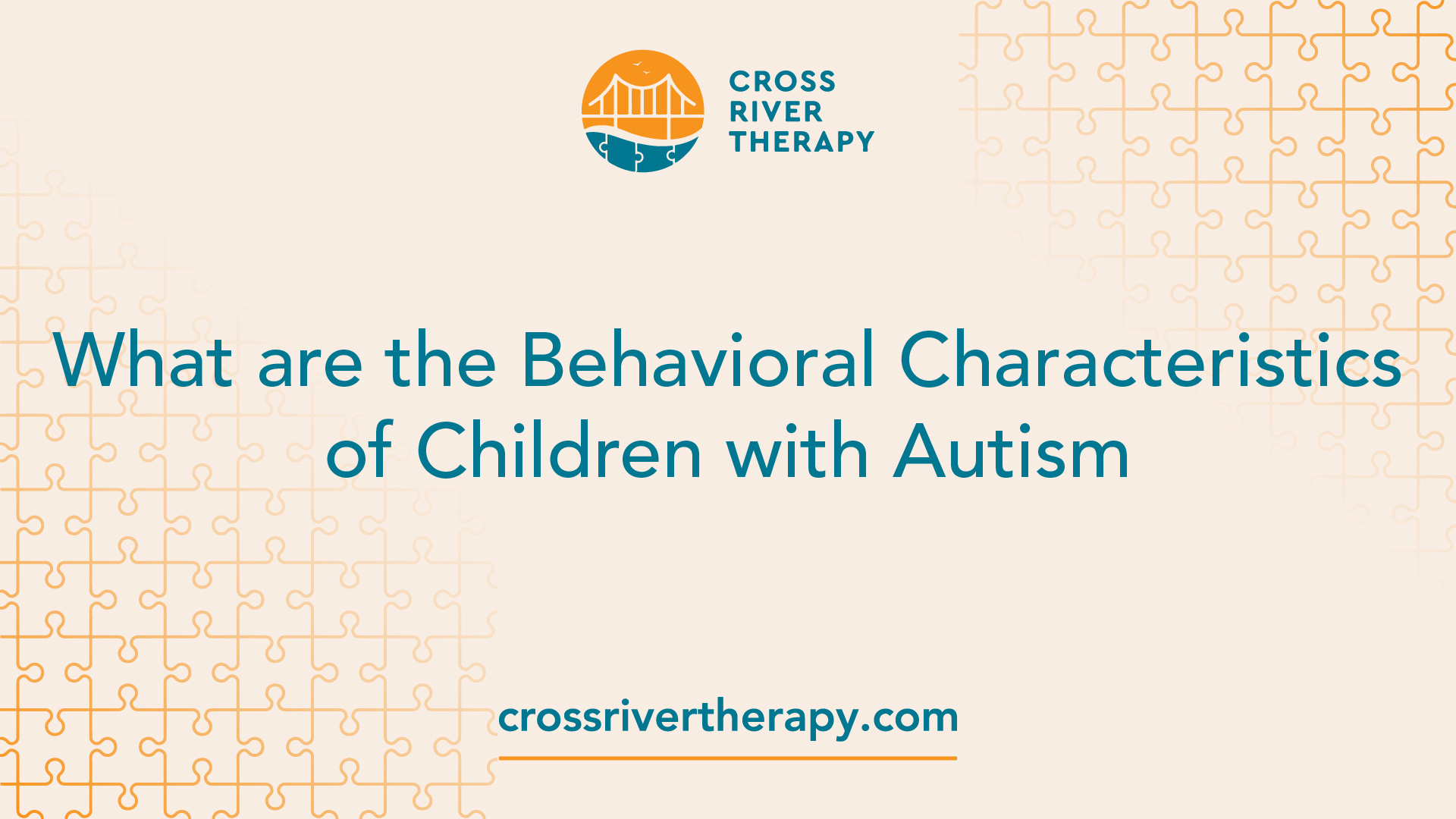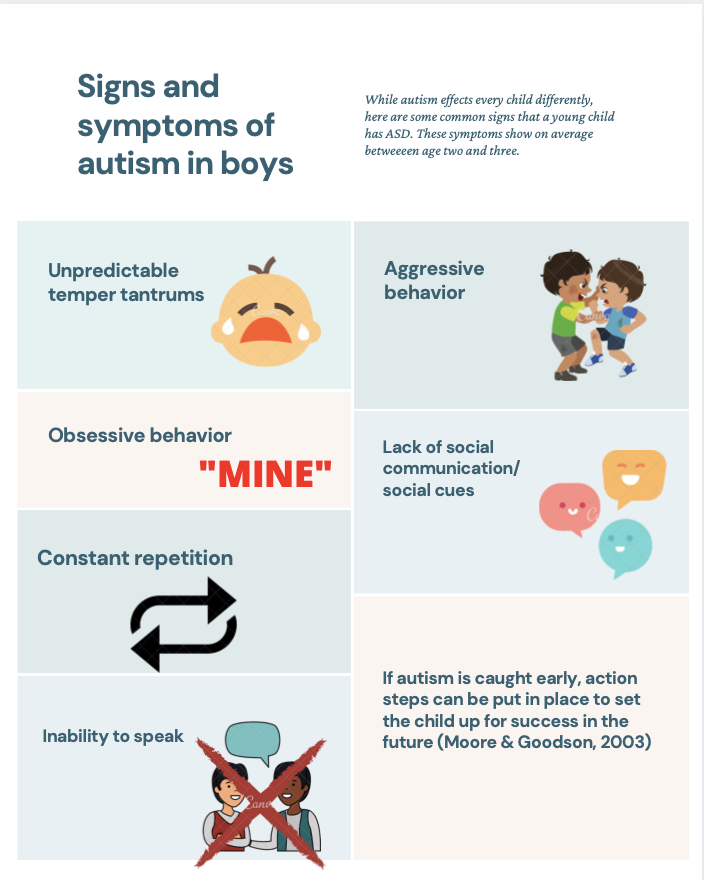When you should consider your family needs Autism Behavioral Therapy intervention
When you should consider your family needs Autism Behavioral Therapy intervention
Blog Article
Understanding the Influence of Behavioral Autism on Every Day Life and Social Communications
You might not recognize exactly how deeply behavioral autism impacts day-to-day life and social interactions. Individuals on the spectrum usually browse a world filled with communication hurdles and sensory overload. These obstacles can lead to aggravation and seclusion, affecting their connections and general health. Recognizing these subtleties is essential for fostering supportive environments. What strategies can we execute to develop more purposeful connections and inclusive spaces? The responses might stun you.
Defining Behavioral Autism and Its Attributes
Behavior autism, commonly described as autism spectrum condition (ASD), includes a variety of problems identified by difficulties in social interaction, communication, and repeated actions. You may notice that individuals with ASD commonly battle to translate social cues, which can bring about misunderstandings in discussions. They may locate it difficult to develop eye get in touch with or take part in little talk, making social circumstances feel frustrating.
Interaction problems can manifest in numerous means, from delayed speech development to a choice for making use of less words. Repetitive behaviors, such as hand-flapping or rocking, can act as coping devices to take care of tension or sensory overload. These features can profoundly influence life, making it important for you to recognize and sustain those with ASD. By identifying these characteristics, you can promote an atmosphere that advertises acceptance and motivates efficient interaction, aiding people with autism prosper in their everyday communications.
The Spectrum of Autism: Comprehending Irregularity in Actions
Autism range problem (ASD) isn't a one-size-fits-all medical diagnosis; it differs commonly amongst people. You might run into people who are highly spoken and engage conveniently in discussions, while others could choose solitary activities or connect non-verbally.
In addition, the means people with ASD reply to sensory input can differ significantly; some could be bewildered by bright lights or loud noises, whereas others prosper in boosting environments. The range additionally includes distinctions in social communications; some people might struggle to analyze social cues, while others browse social setups with loved one simplicity. Recognizing this variability is necessary, as it assists you appreciate everyone's special experience and tailor support to their particular demands, cultivating an extra inclusive setting for everyone.
Communication Challenges Faced by Individuals With Autism
When you connect with individuals on the autism spectrum, you may observe their distinct communication difficulties. They often encounter difficulties with both nonverbal and verbal hints, which can impact their social communications. Recognizing these obstacles is essential for fostering far better connections and assistance.

Verbal Communication Difficulties
Several individuals on the autism range experience spoken communication troubles that can considerably influence their day-to-day interactions. You may locate it challenging to express your thoughts, sensations, or requires plainly. This can cause irritation for both you and those around you, as misconceptions occur. You might fight with starting discussions, maintaining a topic, or understanding nuances in speech. Often, you could choose utilizing straightforward language or recurring phrases, which can restrict your capability to participate in much deeper discussions. Your tone, quantity, or rate could not line up with social assumptions, triggering others to misinterpret your objectives. Identifying these difficulties can help you and your assistance network create methods to enhance communication and cultivate far better links with others in your daily life.
Nonverbal Communication Barriers
Verbal interaction isn't the only obstacle people on the autism spectrum face; nonverbal communication barriers can be just as significant. You could locate it hard to analyze body language, face expressions, and eye contact, which are necessary for efficient communication. These obstacles can bring about misunderstandings or misinterpretations of social signs, making communications really feel complicated or overwhelming. You might struggle to share your own feelings through nonverbal methods, leaving others uncertain of your purposes or feelings. This disconnect can produce sensations of seclusion and disappointment. Acknowledging these obstacles is critical for fostering understanding and compassion in your interactions. By attending to nonverbal interaction, you can locate methods to boost your social experiences and improve your general lifestyle.
Social Communication Effects
Social interactions can usually feel frustrating as a result of the unique interaction challenges encountered by individuals with autism. You might deal with translating social signs, making it tough to understand sarcasm or body movement. This can cause misunderstandings or unpleasant moments in conversations. Additionally, launching and maintaining conversations might feel tough, triggering stress and anxiety in social situations. You might like structured settings, making spontaneous communications awkward. It's also common to experience problem in taking part in little talk, which can prevent developing brand-new relationships. Acknowledging these challenges can aid you locate see this site techniques to enhance communication, such as exercising social abilities in risk-free settings or using aesthetic aids - Aba Therapist Near Me. Comprehending your requirements permits you to browse social interactions with greater confidence and simplicity.
Social Interaction and Partnership Building in Autism
While building connections can be challenging for people with autism, comprehending their special viewpoints and communication styles can foster significant connections. You could observe that many individuals on the range prefer direct communication and may deal with social hints or small talk. By being uncomplicated in your interactions, you can help produce a setting where they really feel comfortable.
Make the effort to pay attention and observe how they express themselves. This understanding can guide you in steering discussions better. Involving in shared passions can additionally work as a bridge to much deeper connections. Whether it's a leisure activity, a favorite program, or a mutual passion, these usual strings can open doors to relationship.
Every Day Life Routine: Browsing Difficulties and Approaches
Steering every day life regimens can be particularly challenging for individuals with autism, particularly when unforeseen modifications occur. You might find convenience in having an organized schedule, as it aids you expect what's next. When interruptions occur, it's regular to feel anxious or overwhelmed. To browse these obstacles, consider implementing aesthetic routines or lists. These devices can supply quality and peace of mind.
Developing a routine that consists of sensory breaks can also be helpful. You can prepare short breaks throughout your day to recharge. It's important to communicate with those around you, letting them understand your preferences and demands. This helps develop an understanding setting.
Last but not least, method mindfulness strategies to take care of stress and anxiety. Simple breathing workouts or grounding techniques can make a considerable distinction. By integrating these strategies, you can improve your everyday routine and reduce interruptions, making life feel extra manageable.
Toughness and Capacities of People on the Autism Range
Comprehending everyday life regimens is just one facet of the autism experience. Numerous individuals on the autism spectrum have exceptional toughness and abilities that establish them apart.
Furthermore, your memory skills typically beam, specifically in areas of interest. Autism Therapist. This propensity for preserving info can make you a beneficial resource in areas like innovation, art, or science. You may additionally exhibit solid aesthetic reasoning, allowing you to imagine complex concepts and resolve issues artistically
In addition, your distinct perspective on the globe can promote compassion and understanding in others, enriching social interactions. Accepting these strengths not just increases your self-confidence however likewise assists others value the diverse abilities you give the table.
Creating Comprehensive Settings for People With Autism
Developing inclusive environments for people with autism starts with designing sensory-friendly rooms that satisfy their distinct needs. You can also foster chances for social interaction, helping to construct connections and friendships. By making these adjustments, you'll contribute to a much more inviting environment for everyone.
Creating Sensory-Friendly Spaces
While making sensory-friendly spaces, it's essential to reflect on the unique requirements of people with autism. Include peaceful areas where people can pull away and recharge when bewildered. Consist of visual timetables or clear signs to assist individuals browse the space confidently.
Promoting Social Communication Opportunities
Creating sensory-friendly spaces not just addresses private comfort yet likewise establishes the phase for meaningful social communications amongst individuals with autism. Urge peer mentoring, pairing people with autism with supportive peers who can assist them through social scenarios. By applying these approaches, you can boost social opportunities, assisting individuals with autism build relationships and enhance their social redirected here abilities in a safe, Source inviting setting.

Regularly Asked Questions
Exactly How Can Friends Assistance A Person With Behavioral Autism?
You can sustain a friend with behavior autism by being individual, paying attention actively, and appreciating their boundaries. Take part in activities they enjoy, connect openly, and create a comfy atmosphere where they feel valued and comprehended.
What Resources Are Offered for Parents of Kid With Autism?
You can check out different resources for parents of kids with autism, consisting of support groups, educational websites, and regional social work. Attaching with other moms and dads can likewise offer beneficial understandings and shared experiences to assist navigate challenges.
Can Behavioral Autism Adjustment Gradually?

Yes, behavior autism can change in time. You may observe changes in communication, social abilities, and behavior as your youngster expands. Early treatment and assistance frequently play vital functions in these developing modifications.
Just How Do Sensory Level Of Sensitivities Impact Daily Life?
Sensory level of sensitivities can make day-to-day experiences overwhelming. You could deal with loud noises or bright lights, bring about tension or evasion. Locating atmospheres that fit your demands can greatly enhance your comfort and total day-to-day live.
What Are Typical Misconceptions About Behavioral Autism?
You could believe behavioral autism only affects interaction skills, yet it's more complicated. Several think individuals do not have empathy or intelligence, which isn't real. Comprehending these mistaken beliefs aids foster approval and assistance for those on the spectrum.
Behavior autism, usually referred to as autism range disorder (ASD), includes an array of problems characterized by challenges in social communication, interaction, and repeated habits.Social interactions can commonly feel overwhelming due to the special communication challenges faced by individuals with autism.Creating sensory-friendly spaces not just addresses private convenience but likewise sets the stage for meaningful social interactions amongst people with autism. Encourage peer mentoring, coupling individuals with autism with supportive peers that can guide them through social situations. By implementing these methods, you can enhance social possibilities, assisting individuals with autism construct friendships and reinforce their social abilities in a safe, welcoming setting.
Report this page